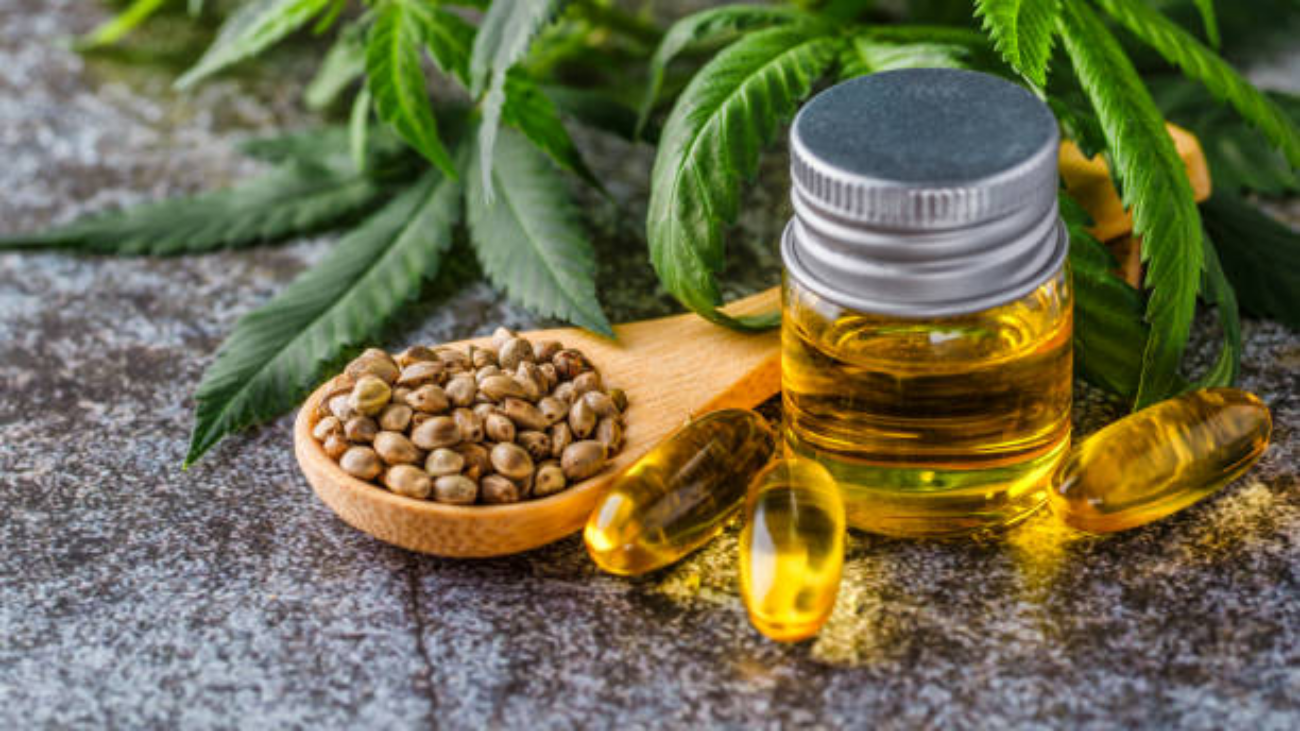Cannabidiol CBD, a subset of the cannabinoid family distinct from THC due to its lack of psychoactivity, is also extracted from the cannabis plant. Although CBD and marijuana share a common ancestor, CBD from medical cannabis sativa plant has unique characteristics and no psychoactive effects.
As it contains no THC, CBD oil is widely tolerated and poses little danger of addiction. While medical CBD oil addiction or dependence is theoretically possible, it is extremely rare. Therefore, persons who cease taking CBD report experiencing essentially no withdrawal symptoms.

More interestingly, CBD may help lessen the discomfort associated with quitting smoking or drinking alcohol, among other substances, because it is generally well tolerated and has some positive effects.
Can CBD Oil Help for Quitting Drugs?
CBD oil has become popular due to claims that it can improve one’s mood in addition to other health benefits. It has been pointed out that CBD may help reduce addictive tendencies and alleviate withdrawal symptoms, two of its possible health benefits.
CBD, a cannabinoid, affects the body’s endocannabinoid system, which is involved in regulating appetite, mood, and pain. Serotonin is a brain neurotransmitter involved in the regulation of happy emotions and the reward system, and CBD has been demonstrated to bind to serotonin receptors. Compulsions, which are linked to addiction and the body’s stress response, can benefit from CBD’s influence on serotonin receptors.
CBD’s effect on many receptors in the brain and body suggests it can mitigate the discomfort of withdrawal and dampen the temptation to engage in destructive habits. However, CBD oil should not be taken in isolation to treat addiction.
Reducing Alcohol Cravings with CBD Oil

CBD oil has shown promise as a potential liver protector, and there is some evidence that it can mitigate the effects of heavy drinking. However, at the present time, this is only preliminary information, based mostly on studies conducted on animals. Studies have shown that cannabidiol (CBD) can help lessen cravings for alcohol and the likelihood of relapsing.
Although promising, this study is still in its infancy and has only been tested on animals. To completely understand how CBD may be helpful in alcohol withdrawal in people, more research is needed.
Cannabidiol for Opiate Withdrawal
It was observed in an animal study that CBD had a direct effect on decreasing drug-seeking behavior associated with heroin addiction. Some preliminary study in humans lends credence to the idea that CBD helps mitigate drug cravings and seeking behavior, hence decreasing the likelihood of relapse.
In addition, CBD has been demonstrated to alleviate the weariness, anxiety, and restlessness that often accompany opiate withdrawal. CBD’s potential to mitigate withdrawal symptoms and cut down on drug cravings makes it an intriguing therapeutic prospect for opiate addiction. where to buy CBD oil is a question that many Australian people have in their minds.
CBD for Benzo Withdrawal
Less attention has been paid to the possible role of CBD for benzodiazepine withdrawal compared to opiate withdrawal. A growing body of research suggests that medicinal marijuana can lessen the need for benzodiazepines, and anecdotal data suggests that cannabidiol (CBD) can assist reduce or replace benzos as a pain-management technique. Unfortunately, CBD was not the primary focus of the studies.
There is preliminary evidence that cannabidiol (CBD) supplements can reduce drug withdrawal symptoms, suggesting that they may be useful for benzo withdrawal; however, more study is needed to confirm this.
Cannabidiol (CBD) for Nicotine Addiction

The body of knowledge is still somewhat thin. However, evidence from existing research suggests that CBD can aid in the treatment of nicotine addiction.
Researchers at the University College London found that CBD had the potential to reduce the desire to smoke. This preliminary 2013 investigation lasted for a full week. 24 nicotine addicts were split into two groups to see what kind of results could be expected from CBD. 12 individuals were given a CBD inhaler, and 12 were given a placebo inhaler, and both groups were instructed to use their inhalers whenever they felt the need to smoke.
The results were promising, with those using the CBD inhalers significantly reducing their weekly cigarette consumption by 40% compared to those using the placebo inhalers.
Evidence of CBD’s “therapeutic potential” in interrupting the cycle of addiction has also been found in a recent study (focused on cocaine and morphine addiction).
These findings “support CBD’s ability to interfere with the consolidation of drug-related memories in context and highlight its therapeutic potential to attenuate contextual memories linked with drugs of abuse and thus lessen the likelihood of relapse.”
These first results show enormous potential for vapes in particular as an effective approach to reduce those nicotine cravings, but more extensive research is needed to thoroughly understand the advantages CBD can have on tobacco addiction.
CBD Oil for Quitting Smoking
Nicotine withdrawal symptoms can persist for days or weeks, but taking CBD in the morning can help ease the discomfort. Here we’ll consider some examples of withdrawal symptoms experienced when quitting smoking and how CBD oil can manage these symptoms.
Insomnia
Nicotine cessation frequently causes sleep disruptions. According to research compiled by the National Library of Medicine, cannabinoids in cannabis alleviate the signs and symptoms of sleeplessness. CBD and CBN are two substances you should look into.
Anxiety
According to research, “increased anxiety is a significant nicotine withdrawal symptom that correlates to relapse in smokers seeking to quit.” However, based on their findings, CBD may help alleviate anxiety by boosting serotonin levels.
Irritability
Some smokers think that smoking helps them relax, and giving up the habit can cause irritability. Researchers at the University of Florida have found that CBD inhibits the breakdown of anandamide, according to a study published in Psychology Today. More anandamide in the brain means more happiness.
Pains
Quitter’s flu is a term for the moderate fever and aches and pains that some people report when they first attempt to quit smoking. Research shows that CBD’s anti-inflammatory effects come into play when it interacts with the body’s endocannabinoid system, making it a useful tool in the treatment of chronic pain.
Dental Implants
Many people who have given up smoking say they miss the tactile sensation of a cigarette in their lips or fingers. Substituting a CBD vape pen for your cigarette can help you stick to your regimen, and the daily microdose of CBD can provide you with additional relief.
Inability to Focus
Lack of focus or clarity may occur from nicotine withdrawal symptoms such as anxiety, insomnia, pain, and irritability. CBD’s effect on these symptoms suggests that it may also have a beneficial effect on one’s ability to concentrate and maintain attention.
Finally
CBD oil, cannabis oil, and cannabidiol CBD have been used consistently in the treatment of conditions such as chronic pain, anxiety disorders, cancer treatment, multiple sclerosis, post-traumatic stress disorder, and for other health benefits. To know more about buying CBD oil in Australia and other hemp seed oil benefits, you should book a consultation session with a professional from Chronic Therapy today.
If you are also looking for information about scientific evidence that supports both CBD oil and other medicinal cannabis product usage, you are in the right place. You will also be informed about every adverse effect, preclinical evidence, and symptom related to CBD and hemp seeds, including their potential health benefits, hemp-derived CBD products, and dietary supplements, how cannabidiol reduces cigarette consumption and as a potential anticancer drug; where to buy CBD oil legally and state medical marijuana laws.





